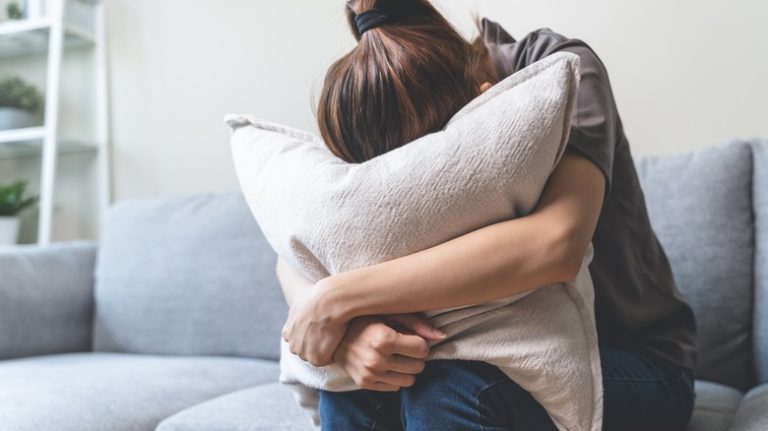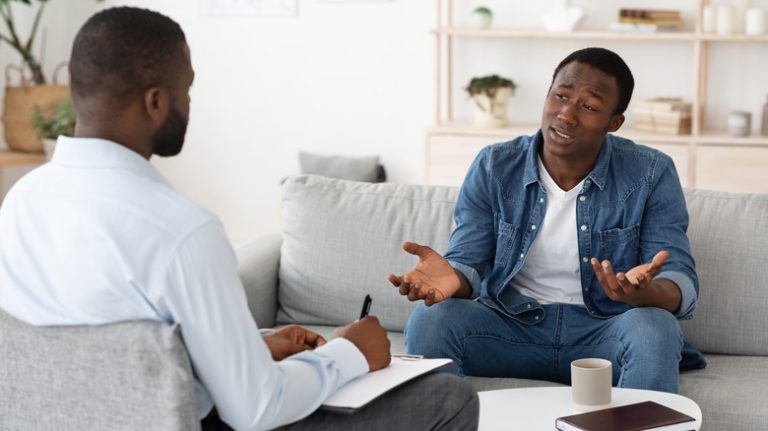On June 24, 2024, the Supreme Court made its ruling in Dobbs v. Jackson Women’s Health Organization. Their decision overturned Roe v. Wade, a previous ruling that protected access to abortions under the constitution. In light of this decision, the right to abortion access can now be decided at a state level. Several states, including Arkansas, Alabama, and Oklahoma, have already prohibited abortions after the court’s ruling, and several more states may follow.
With so many changes, many who previously had access to abortions no longer do, and others are concerned they may lose those rights soon. Access to abortion affects women and people with uteruses in many ways, and some mental health professionals are concerned about the toll this decision may take on women’s mental health. Sarah Harte, LICSW & Director at The Dorm, gave an exclusive interview with Health Digest to discuss the mental health impact of this decision. Harte is an adjunct lecturer at Columbia University’s School of Social Work. She also works with patients ages 18-35 as the director of The Dorm, which is a full-service treatment community. Both in her hands-on work and studies, Harte has seen how abortion access can affect everyone, especially young people.
The mental health impact of abortion access
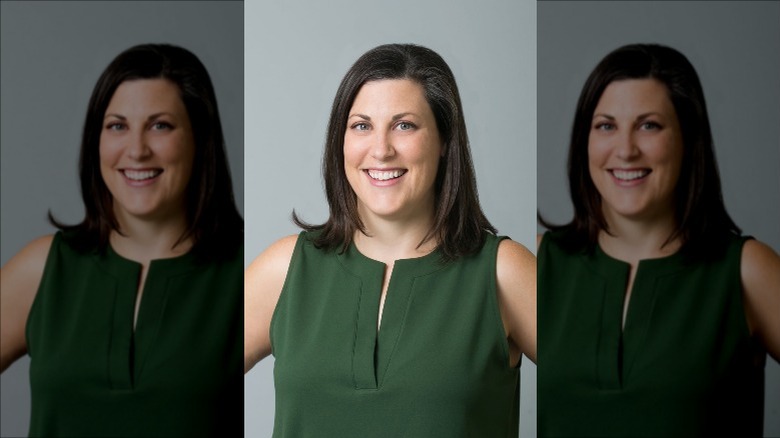
What mental health concerns do you expect to see in young women and people with uteruses since the overturning of Roe v. Wade, particularly in states where abortions are now banned?
Limiting access to abortion has long-lasting impacts physically, emotionally, and socially on both the person carrying the pregnancy and the child. It is important to remember that pregnancy is not a “health neutral” event — there is a real and sometimes negative impact on the woman’s body and overall health, even for years, following a pregnancy. This also includes the risk of negative impacts to mental health in both the short and long term.
Removing the opportunity of choice to terminate a pregnancy can create feelings of being trapped and stuck while making previously existing conditions worse, both mental and physical. People who are pregnant often need to weigh the pros and cons of carrying a pregnancy to term against the possible risks to their emotional and physical health. The Turnaway Study found that people who were denied abortions — and the children who were born — experienced increased negative health impacts, as well as negative financial impacts, as compared to women who were allowed to terminate their pregnancy. This decision also exacerbates the stigma that is already present in the U.S. culture around abortion, further alienating people who make the choice to terminate a pregnancy to protect their own well-being.
Compared to having an abortion, the process of being denied a desired abortion may be associated with a greater risk of experiencing adverse psychological outcomes in the short term.
Does access to abortion positively impact the mental health of women and people with uteruses, and if so, how?
Yes — and more importantly, having a wanted abortion is not associated with mental health harm. According to the Turnaway Study, abortion does not increase a woman’s risk of experiencing symptoms of depression, suicidal ideation, post-traumatic stress, anxiety, or stress in the short term, or even over five years.
How losing abortion rights adversely affect victims, minors, and low income communities
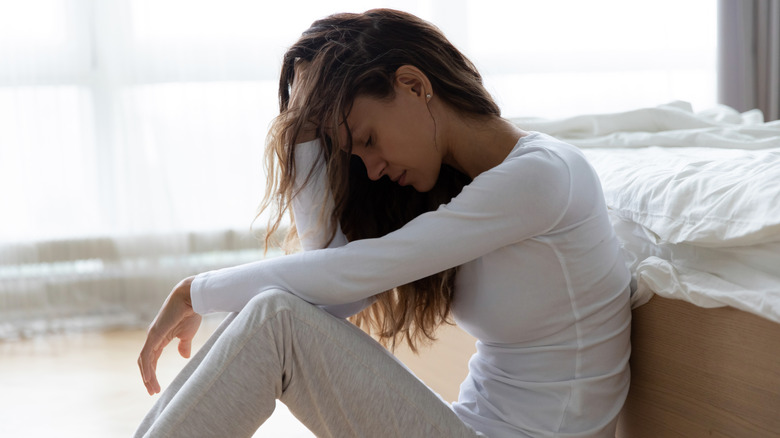
How will this decision further impact the mental health of victims of rape or domestic violence?
People who are victims of sexual violence or other forms of abuse have compounding negative influences that threaten their physical, emotional, and financial wellbeing. Adding an unwanted pregnancy to an already horrific experience further hinders their ability to break away from an abuser and begin to heal. The lack of access to abortion in these circumstances also introduces another generation that could bear witness to violence and all of the compounding negative effects that violence creates in people’s lives.
Are you concerned about BIPOC individuals and other marginalized communities feeling these mental health effects disproportionately?
The implications of limiting access to abortion are not just a “women’s issue.” All genders, relationships, and types of families are impacted by the lack of choice to terminate a pregnancy. However, the most severe ramifications from this decision occur in rural communities and in communities with lower incomes, which are disproportionately communities of color, according to The Guttmacher Institute.
Teens and young adults who find themselves with an unwanted pregnancy are at an even higher risk for negative implications because of their lack of independent access to health care, personal finances, and accurate health information.
Do you think this decision will increase the mental health crisis in the U.S., and if yes, how? Will the now increased stress on women and people with uteruses affect the availability of counseling and other mental health services?
Due to the mental health crisis present in the U.S., there is a limited quantity of available mental health resources — especially in under-resourced and rural communities. When people reach out for mental health support, they are often faced with long waitlists and a mental health system that is not user-friendly. Research shows that a lack of access to abortion care will worsen a woman’s existing mental health conditions, hence adding more stress to an already stressed system.
If you or anyone you know has been a victim of sexual assault, help is available. Visit the Rape, Abuse & Incest National Network website or contact RAINN’s National Helpline at 1-800-656-HOPE (4673).
If you or someone you know is dealing with domestic abuse, you can call the National Domestic Violence Hotline at 1−800−799−7233. You can also find more information, resources, and support at their website.
If you or someone you know is struggling with mental health, please contact the Crisis Text Line by texting HOME to 741741, call the National Alliance on Mental Illness helpline at 1-800-950-NAMI (6264), or visit the National Institute of Mental Health website.
Best advice for coping with the stress
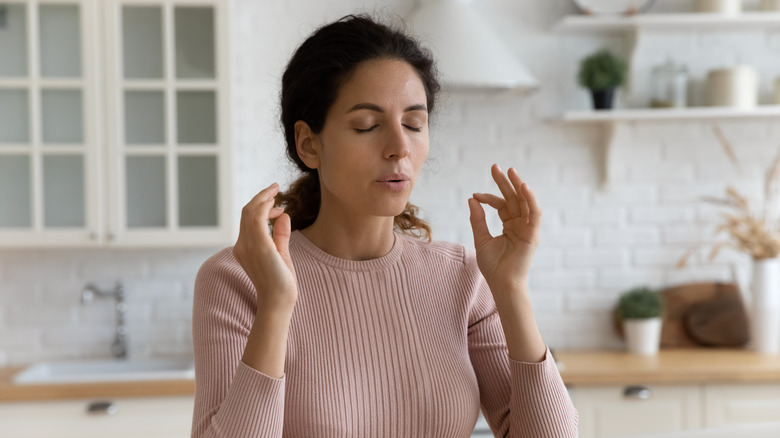
fizkes/Shutterstock
How can individuals cope with greater stress and other mental health concerns brought on by this decision?
Focus on the fundamentals: Make sure you are taking care of yourself by getting enough sleep, nourishing and moving your body, and reaching out to your trusted family and friends for emotional support. For those [who] find their emotions are keeping them from taking care of important things, finding pleasure in life, or impacting their relationships, it might be time to seek out professional help.
How can those fighting for the rights of women cope with feelings of hopelessness after this decision?
It is normal to have strong reactions to this news. It is helpful for people to find supporters who will encourage them to share their feelings, provide comfort and reassurance, and remind them that while this feels very permanent right now, they still have a voice and the ability to change this decision in the future. Learning to productively channel our feelings and reactions into action and positive change is an invaluable life skill that everyone should have the opportunity to practice.
It is also important to remember that people do not see eye to eye on this ruling. I encourage people who are passionate about these issues — on any side — to keep debating on the topic in a civil and respectful way [and] to work toward gaining an understanding of each other’s positions.
For more information on The Dorm and its mental health treatment services, please visit thedorm.com.
This interview was edited for clarity.

